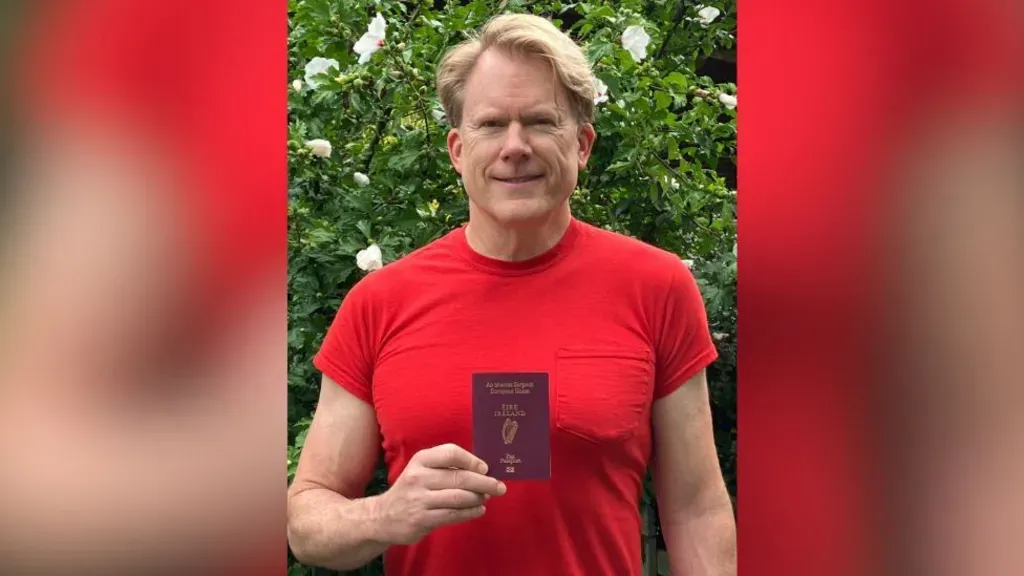In a remarkable twist of fate, Professor John Portmann, an Arizona native, has become one of the first individuals to secure Irish citizenship solely based on the results of a DNA test. This extraordinary journey from a surprise revelation to a new national identity is a testament to the profound impact modern genetic testing can have on individuals’ lives.
The Unexpected Revelation
An Ordinary Life Turned Extraordinary
Born in Phoenix, Arizona, in the summer of 1963, Professor John Portmann’s life seemed to follow a conventional path. Adopted by a caring family after being taken into the care of the Sisters of Mercy nuns, he grew up without much thought about his biological origins. For most of his life, he was content with his adopted identity and did not seek to uncover his birth parents’ background.
The Catalyst for Change
It wasn’t until a few years ago, prompted by his adoptive sister’s encouragement, that Professor Portmann decided to take a DNA test. The test, which was intended as a casual exploration of his heritage, led to an astonishing revelation that would alter the course of his life. The results indicated that he was 100% Irish—a discovery that left him in disbelief.
The Shock of Discovery
Initial Doubts and Confusion
Receiving the DNA test results while dining out one evening, Professor Portmann was initially bewildered by the findings. The result, stating he was 100% Irish, seemed implausible to him. “I thought it must be a mistake,” he recalled. The idea that he could be entirely of Irish descent seemed so far-fetched that he wondered if there had been a mix-up with another person’s sample.

Seeking Validation
Determined to understand this unexpected outcome, Professor Portmann sought the expertise of a Canadian DNA specialist, whom he affectionately calls a “DNA detective” or “DNA angel.” This expert confirmed the accuracy of the test results, reassuring him that there was no error. With this validation, Professor Portmann began to delve into the implications of his newfound heritage.
A Journey of Discovery
The Emotional Impact
The revelation of his Irish ancestry triggered a whirlwind of emotions for Professor Portmann. Despite having managed to suppress thoughts about his biological parents throughout his life, the DNA test forced him to confront these long-buried feelings. “All of a sudden, it was impossible to keep them out,” he said, describing how thoughts of his biological parents and Ireland occupied his mind constantly.
Searching for Identity
The discovery of his Irish heritage ignited a deep-seated curiosity about his origins. Professor Portmann embarked on a quest to learn more about Ireland, his biological family, and his connection to the country. This journey was not only about understanding his lineage but also about seeking a sense of identity and belonging.
Gaining Irish Citizenship
The Process and Significance
Armed with the knowledge of his Irish ancestry, Professor Portmann pursued Irish citizenship, a process that has become increasingly accessible due to advancements in genetic testing. The process, which involved verifying his lineage and fulfilling the necessary legal requirements, culminated in the awarding of an Irish passport. This achievement is noteworthy as it underscores the evolving ways in which nationality and identity are being defined in the modern world.
A Symbol of Connection
For Professor Portmann, the Irish passport is more than just a travel document; it represents a profound connection to his heritage. “The Irish passport is quite special. It’s the only one that gives you privileges not only in the EU but also in the UK,” he remarked. This newfound identity allows him to explore his roots and embrace a cultural heritage that was previously unknown to him.
Discovering Family Ties
Meeting Relatives
One of the most rewarding aspects of Professor Portmann’s journey has been reconnecting with his biological family. Through the same DNA testing website, he discovered a cousin with whom he shares a familial connection. Their biological fathers were brothers, and this revelation opened up new avenues for exploring his family’s history.
Uncovering the Past
In addition to finding a cousin, Professor Portmann learned more about his biological family’s past. This included understanding the circumstances surrounding his biological mother and father, both of whom have since passed away. He reflects on the life his mother led, expressing regret that she carried a sense of shame about their relationship.
Emotional Reflections
Understanding His Mother’s Legacy
Professor Portmann discovered that his mother had kept a picture of him, which she intended to be buried with her. This poignant revelation provided him with a sense of closure and connection to his mother. “It’s a nice feeling to know that my mother never forgot me,” he said. This insight into his mother’s life and her feelings has added depth to his understanding of his own identity.
Reconciling the Past
Reflecting on his journey, Professor Portmann acknowledges the complex emotions involved in discovering his heritage and connecting with his past. While the initial shock of the DNA results was overwhelming, the process of exploring his ancestry and gaining Irish citizenship has been a profoundly meaningful experience. “It could be that… maybe she might have had me and just sort of moved on with her life, and tried not to think about me as I tried very hard not to think about her,” he mused. “But it is wonderful to know that she did think about me.”
Conclusion
Professor John Portmann’s journey from discovering his Irish ancestry through a DNA test to gaining Irish citizenship is a compelling narrative of identity and connection. His story highlights the transformative power of genetic testing and the profound impact it can have on individuals’ lives. As Professor Portmann embraces his new identity and explores his heritage, his experience serves as a testament to the evolving nature of nationality and personal history in the modern world.


